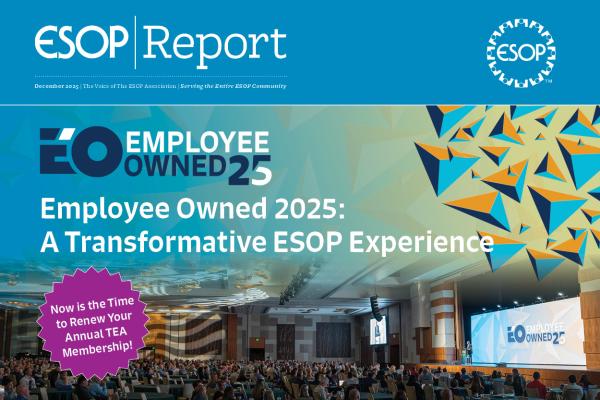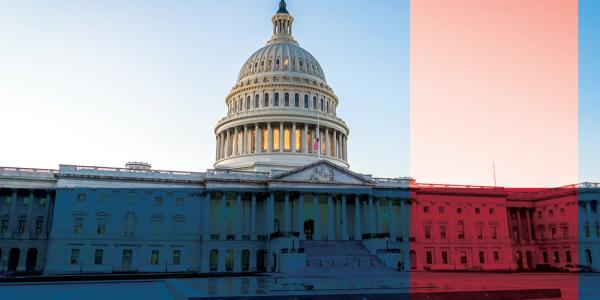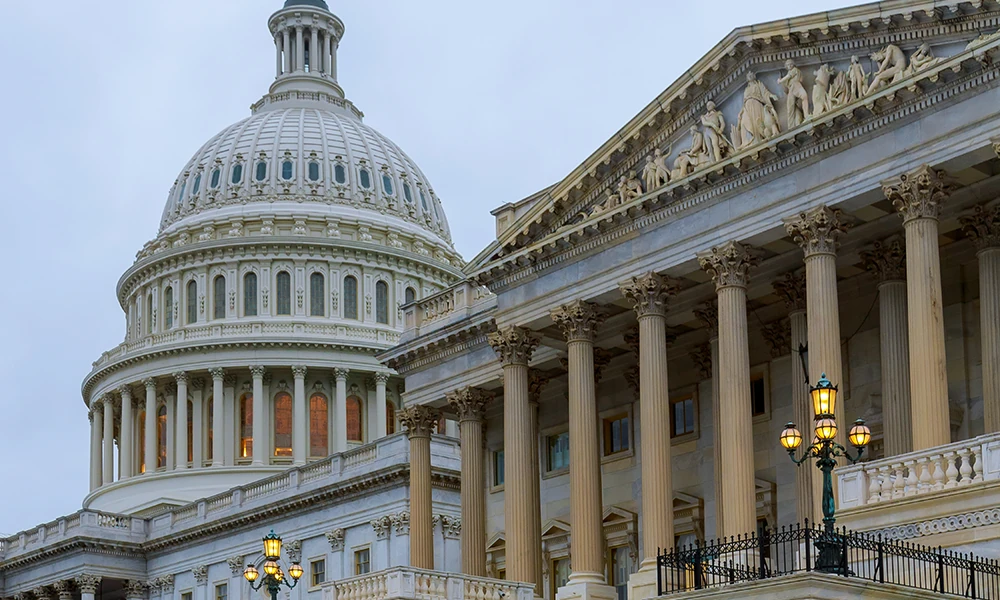U.S. House of Representatives Passes SECURE Act 2.0
Includes Provisions Benefitting ESOPs
WASHINGTON, DC – The U.S. House of Representatives passed H.R. 2954, the Securing A Strong Retirement Act (SECURE 2.0) by a massive bi-partisan majority of 414 to 5. Included in the House-passed version are two provisions that will assist Employee Stock Ownership Plans (ESOPs) or business owners seeking to establish them.
“These are modest steps forward and it is our hope the Senate will continue to expand upon the work the House started,” said Jim Bonham, President and CEO of The ESOP Association. “Included in the bill is an initial step forward in leveling the playing field between C-corporations and S-corporations when selling shares to an ESOP. We are also pleased with the opportunity contemplated under Section 118 for ESOPs to offer shares on certain SEC-regulated interdealer quotation systems. This section could assist some ESOPs in establishing valuations as well in potentially creating a market where ESOPs might invest in other ESOPs to meet diversification requirements.”
Section 117 of the bill modifies Section 1042 of the Internal Revenue Code to modestly expand eligibility on the deferral of recognition of gains from the sale of stock to an ESOP including “all domestic corporations” rather than just “C corporations” under current law. However, the deferral is severely limited to no more than 10% and does not take effect until after December 31, 2027. The S-Corporation must otherwise meet all other requirements for 1042 deferral, including the requirement that at least 30% of the company must be owned by the ESOP after the sale.
“We are grateful to the House for including this incremental improvement and we look forward to the opportunity to continue to improve upon it as the bill works its way through the Senate and eventually to a House-Senate agreement,” Bonham continued. “In particular, we would like to see the effective date moved up and the 10% limitation increased. With the looming retirement of millions of baby boomer business owners in the next ten years, we would hate to see this incentive for ESOP formation miss nearly half of those retirements because of an effective date more than five years from now.”
From the House Ways and Means Committee Description of the relevant sections:
Section 117 - Deferral of tax for certain sales of employer stock to employee stock ownership plans sponsored by S corporations: Deferral of tax for certain sales of employer stock to employee stock ownership plan sponsored by S corporation. Under section 1042, an individual owner of stock in a non-publicly traded C corporation that sponsors an ESOP may elect to defer the recognition of gain from the sale of such stock to the ESOP if the seller reinvests the sales proceeds into qualified replacement property, such as stock or other securities issued by a U.S. operating corporation. After the sale, the ESOP must own at least 30% of the employer corporation’s stock. Section 117 expands the gain deferral provisions of Code section 1042 with a 10% limit on the deferral to sales of employer stock to S corporation ESOPs. Section 117 is effective for deferrals made after December31, 2027.
Section 118 - Certain securities treated as publicly traded in case of employee stock ownership plans: Certain securities treated as publicly traded in case of employee stock ownership plans. Section 118 updates certain ESOP rules related to whether a security is a “publicly traded employer security” and “readily tradeable on an established securities market”. In particular, Section 118 allows certain non-exchange traded securities to qualify as “publicly traded employer securities” so long as the security is subject to priced quotations by at least four dealers on an SEC-regulated interdealer quotation system; is not a penny stock and is not issued by a shell company; and has a public float of at least 10 percent of outstanding shares. For securities issued by domestic corporations, the issuer must publish annual audited financial statements. Securities issued by foreign corporations are subject to additional depository and reporting requirements. The updated definitions in Section 118 will allow highly regulated companies with liquid securities that are quoted on non-exchange markets to treat their stock as “public” for ESOP purposes, thus making it easier for these companies to offer ESOPs to their U.S. employees. Section 118 is effective for plan years beginning after December 31, 2026.
# # #
About the ESOP Association
The ESOP Association is the largest organization in the world supporting employee-owned companies, the more than 10 million U.S. employees who participate in an ESOP, and the professionals who provide services to them. Headquartered at the International Employee Ownership Center in Washington, DC and operating as a 501(c)6 organization with the affiliated Employee Ownership Foundation, The ESOP Association conducts and funds academic research, provides more than 160 annual conferences and events attended by nearly 15,000 individuals, and advocates on behalf of employee owners and their businesses to federal and state lawmakers.
Press Contact:
Greg Facchiano
gfacchiano@esopassociation.org
202-293-2971







